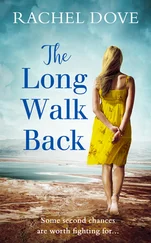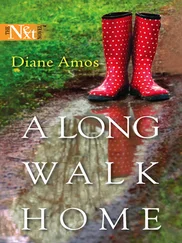Of the art of mountaineering we learned much as the weeks crept by. I had done some climbing in Poland before the war, but it bore little resemblance to this grim Himalayan business. Then I had stout spiked boots and all the civilized paraphernalia, plus the services of an expert guide. And we had climbed in summer, for sport. Here we would claw our way upwards for hours, sacks lashed on our backs, only to find our way blocked by a sheer, smooth outward-thrusting rock face. We would cling to our holds and rest our toes, cramped and sore with their prehensile curling inside the soft moccasins for footholds. Then we would turn about and go down and down until we found a place from which to attempt a different approach to the summit. In these conditions the going was very slow. Our total equipment was one strong rawhide rope limited in use by its short length, the axe — by far the greatest single asset — the broad-bladed knife and the loops and spikes we had made back in the heat of the Gobi.
We climbed as individuals but in set order. Zaro, the lightest man, led the way upwards, testing the holds with the axe, breaking through the ice-crust on the snow, blazing a trail for the rest of us. I came next, sometimes changing over leadership with Zaro to give him a rest, then Kolemenos, Mister Smith and Paluchowicz. We tried to make things as easy as possible for the two older men, but they always insisted on taking the lead on the descents. We still carried our trusty sticks and on gentler slopes used them for probing through the snow for hidden crevices. At other times we carried them stuck through our belts at our backs.
Zaro would have made a skilled and intrepid climber in any company. A clumsy device we thought up and made for getting us past bulging overhangs of rock was a weighty piece of smooth, hard, black stone, waisted in the middle like a figure 8, to which we tied our rope. This we would throw up and over, again and again and again, until eventually, unseen somewhere above, it would jam itself and take hold. Kolemenos would haul gently at first at the rope until it took his full weight. Then Zaro heroically would start to climb while we watched with our hearts in our throats, knowing that the penalty for a slip was death. When I saw on one or two occasions by what flimsy chance the stone had taken hold on the original throw my stomach turned over.
Occasional bright days brought the additional trial of sunglare off the white snow. We were harrowed, too, by a new experience of intense physical discomfort: the manner in which the cold struck at our foreheads until they seemed to be held in frigid bands of ice. This trouble we overcame by making sheepskin masks with slits for the eyes, the upper parts held under the rim of our caps and the lower parts hanging loosely at nose level. The masks were effective for the purpose for which they were designed, and they also seemed to help with the trouble of snowglare, but we found that moisture gathered beneath them, trickled and froze round the nose and mouth. There were times when I had to stop and thaw out the gathering ice by holding the lower part of my face in my mittened hands. We kept our hands covered as much as possible, but when climbing demanded the use of the fingers our mittens hung from our wrists by thongs. With the masks around our heads and tied at the back of the head and the ear-flaps of our Russian-style caps in position, we found it difficult to hear one another. Irritation piled on irritation. We were deadly tired, morose, always hungry. My nerves were strung up like piano strings. It was too cold to sleep.
About the beginning of March the five of us walked out of a snow-flurry along a sweeping downward east-to-west traverse into the sudden sunshine of a deep, white-clothed depression between the mountains. It was mid-morning and the sun invited us to take off our masks and caps. We sat down and rested, wrapped in silence. We had been foodless for a couple of days and our spirits were low. We sat hunched up without talking. Then I heard a sound and strained my ears to hear it again and identify it.
‘I heard a dog bark,’ said Paluchowicz.
‘I heard something, too,’ I put in.
Paluchowicz pointed excitedly. ‘It came from that direction. We must go and investigate.’
We walked along for about a quarter of a mile with our ears pricked. The sound of the dog barking was so loud and so close when it came again that we stopped in our tracks. We looked around and could see nothing. We were expecting to see a house or a shack but there was no building of any sort in sight. The dog must have scented us, because it set up a prolonged yapping until we tracked down the source as the mouth of a cave, black against the surrounding whiteness. It was only about a hundred yards away, and as we went towards it we saw the figure of a man come out into the light and look in our direction. He spoke to the dog, now joined by another one, and it stopped its noise.
He was an elderly man, with wispy white hair around his chin and a seamed and wrinkled, weather-beaten brown face. His smile showed gaps where age had robbed him of some of his front teeth. He was well clothed against the cold with the usual Tibetan sheepskin surcoat over padded jacket and trousers. He wore a fine pair of boots of leather, the upper part around the lower calf fretted with an openwork pattern which showed an inner lining of green felt. I don’t know which side was the more delighted at the meeting. The old man wagged his head and bowed and talked and flashed his great gap-toothed smile. We bowed and laughed and were happy enough to have danced in a ring about him. Even the dogs, gingery brown and looking like smaller editions of Samoyeds, were infected with enthusiasm and ran round us furiously swinging their bushy tails and yelping with excitement.
Outside the cave was a low wall about four feet high made of loosely heaped stones which acted as a windbreak. He led us round the wall and into half-gloom and immediately, before our eyes became adjusted to the change of light, our noses were assailed by the strong, clinging, fuggy odour of sheep.
The small size of the opening left me unprepared for the lofty spaciousness of the interior. The cave bent round so that its floor plan was like a boomerang. The man and his dogs lived in the space of about fifteen feet from the opening to a point where the cave was partitioned off with a rubble wall. Behind, into the farthest recesses, were sheep, about a hundred of them, I judged. This then was the winter quarters of a shepherd awaiting the coming of spring and the melting of the snows so that the sheep could be allowed out to graze on the fresh green grass of the valley. On pegs hung four or five packs of hay in big-meshed nets. A pile of empty nets showed that the sheep had been penned inside for many weeks.
A fire burned in the middle of the floor and nearby was a heap of brushwood and dung fuel. One large and one small iron cauldron stood against the stones of the fireplace. The large one, I discovered, was used for melting snow to provide water for the sheep. The other was the shepherd’s general utility cooking pot, in which he straightaway started brewing tea and for the only time in Mongolia or Tibet I saw tea made with loose dried leaf. It came from a polished wooden box and was olive green in colour. This must have been a welcoming special treat because subsequent brews were made with the usual black brick tea.
From his waist the old man took out a clasp knife and opened it. He knelt down and began with slow deliberation to sharpen the blade on a flat stone. The dogs got up and danced around him as he worked. They knew there would soon be fresh meat. He tried the edge of the steel on the ball of his thumb, grinned at us, and went off among the sheep, the dogs frisking at his heels. He went outside the cave with a kicking, bleating young sheep under his arm and in a remarkably short time was back with the fresh-skinned carcase. The dogs were fed at the cave entrance with the head and tit-bits of offal and then he cut off joints for roasting. While the meat hung spitting and sizzling on a wooden bar over the fire, the old man amused us by putting his fine boots under the roast and allowing the fat to trickle over them, afterwards rubbing it into the leather, presumably to soften and preserve it. With coarse flour and a little water from the bottom of the big cauldron he kneaded up cakes and baked them on a flat stone over the side of the fire. We ate like starving men and there was no difficulty about the performance of belching our appreciation at the end of the meal.
Читать дальше
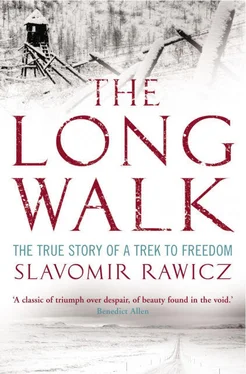

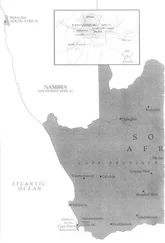


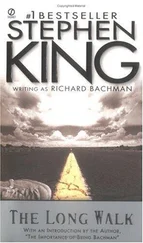
![Джеффри Арчер - The Short, the Long and the Tall [С иллюстрациями]](/books/388600/dzheffri-archer-the-short-the-long-and-the-tall-s-thumb.webp)
